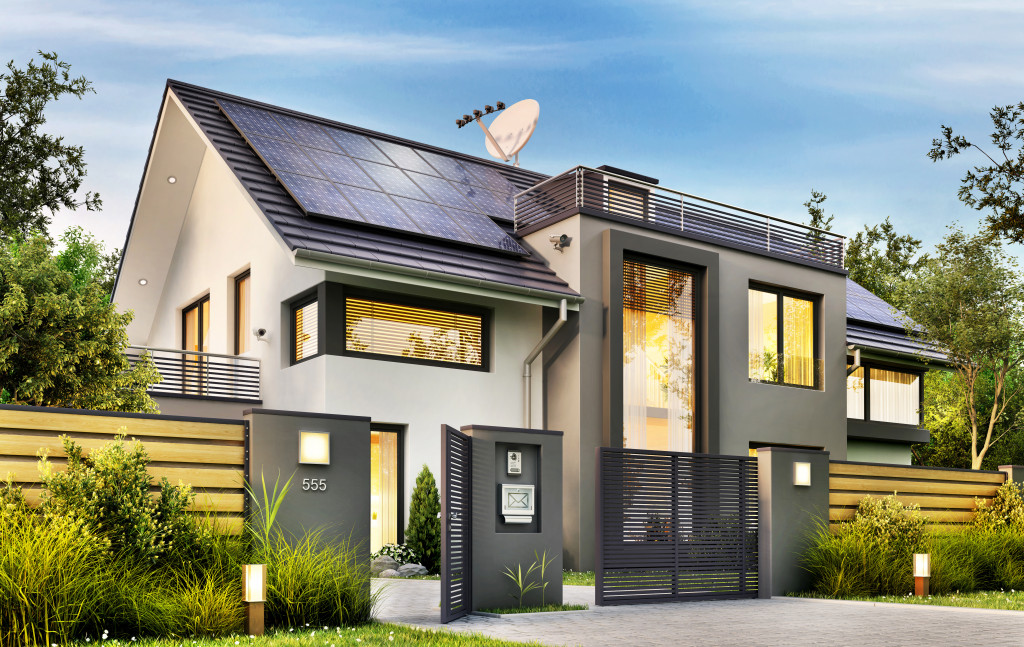- Invest in durable materials such as stucco, brick, vinyl siding, and stone to protect your property from the elements.
- You need to ensure proper drainage to prevent water damage to the building’s interior.
- Install impact-resistant windows for added security and protection against high winds and debris.
- Keep trees and shrubs trimmed to reduce the risk of damage by wind or snow.
- Secure your property with adequate insurance coverage for any potential risks posed by natural disasters.
As a residential real estate investor, you must protect your properties from the elements to ensure they retain their value and earn you a return on investment. Weather and natural disasters can cause significant damage to your investment, resulting in costly repairs and depreciation in value. Luckily, there are ways to protect your investment and your income. In this blog, you will learn a few tips to help you protect your residential real estate investment from the elements.
Use durable materials.
When choosing materials for your property’s exterior, opt for those with durability in mind. Avoid materials that are prone to rot or decay, such as wood siding, trim, or decking. Instead, choose materials like the following:
Stucco
Stucco is a cement-based material that is incredibly durable and able to withstand extreme weather conditions. It won’t rot, warp, or peel and can be easily patched if it does sustain any damage.
Brick
Brick is a traditional building material with great durability. It’s fire-resistant, long-lasting, and doesn’t require much in the way of maintenance over time.
Vinyl siding
Vinyl siding is another option for protecting your property from the elements. It holds up well to strong winds, extreme temperatures, and moisture exposure. Plus, it requires very little maintenance and is available in a wide range of colors and textures.
Stone
Stone is an excellent option for protection against the elements. It’s incredibly durable and can withstand extreme temperatures, moisture, and wind. Plus, it has a timeless beauty that can add value to any home.
Investing in durable materials from the outset will last longer and save you money in repairs in the long run.
Ensure proper drainage.
Water can be the most significant threat to your real estate investment. To safeguard against water damage, ensure your property has proper drainage systems. This includes ensuring that your property’s roof, gutters, and downspouts are in good working order.
Perform regular maintenance, such as cleaning gutters and unclogging downspouts, to prevent water from accumulating in and around your property. Proper drainage will keep your foundation intact and help prevent water damage to the building’s interior.
Install impact-resistant windows.

Windows are the most vulnerable feature of any property when it comes to the elements. To protect your investment, consider installing impact-resistant windows. They are engineered to resist the impact of high winds and flying debris, reducing the risk of window damage during hurricanes and other natural disasters. Impact-resistant windows also provide added security, reducing the risk of break-ins and property damage.
Keep trees and shrubs trimmed.
While trees and shrubs add curb appeal to any residential property, overgrown vegetation can pose risks to your investment. Overgrown trees and shrubs can damage your property’s exterior, including the roof and gutters, during strong winds or heavy snowfalls. Trim trees to remove dead or weak branches that can fall on your property during storms. Regular maintenance will prevent overgrown vegetation from becoming a threat to your investment.
Have a strong roof.
Your property’s roof is its first line of defense against the elements. A weak roof can easily succumb to wind and rain, resulting in costly repairs. Before investing in a residential property, have an inspector check the roof’s condition and make any necessary repairs. Installing strong materials such as metal or tile will also help to protect your property from weather damage.
And make sure you employ the help of a professional roof replacement service provider. They will use the best quality supplies and have the necessary experience to ensure that your roof lasts. They are also able to install roofing systems that offer maximum protection from the elements.
Secure your property against natural disasters.

Natural disasters such as hurricanes, wildfires, and floods can be unpredictable and devastating for residential real estate investors. To protect your investment, consider securing your property through insurance coverage.
Ensure that you have adequate coverage for the type of natural disasters that pose a threat to your property. Consider partnering with a disaster response company that can provide emergency assistance in the event of a natural disaster.
Protecting your residential real estate investment from the elements is essential to ensure it retains its value and earns you a return on investment. Investing in durable materials, ensuring proper drainage systems, installing impact-resistant windows, trimming trees and shrubs, and having a strong roof will help protect your property against weather damage and natural disasters. Additionally, ensure you have adequate insurance coverage for these events’ potential risks. With these tips, you can rest assured knowing that your residential real estate investments are secure.




